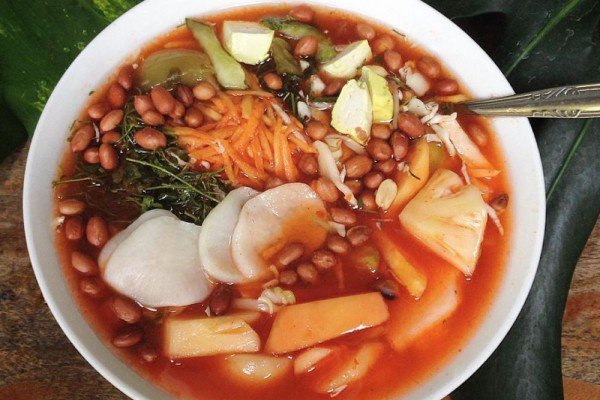Introduction: Russian Cuisine and its Influences
Russian cuisine is known for its hearty, comforting dishes that make use of simple ingredients like potatoes, cabbage, and meat. It’s a cuisine that has been shaped over the centuries by a variety of influences, from neighboring countries to historical events to modern globalization. Understanding these influences can help us appreciate the richness and diversity of Russian cuisine.
Neighboring Countries: The Impact of Eastern Europe
One of the biggest influences on Russian cuisine comes from its neighbors to the west, particularly Poland, Germany, and Austria. These countries have contributed a number of dishes to the Russian repertoire, including pierogi (dumplings stuffed with meat or cheese), schnitzel (breaded fried meat), and strudel (a pastry filled with fruit or cheese). These dishes have been adapted over time to suit Russian tastes, incorporating local ingredients and cooking techniques.
Asian Influences: Mongolian and Chinese Cuisine
To the east, Russian cuisine has been influenced by Asia, particularly Mongolian and Chinese cuisine. Mongolian cuisine is known for its hearty meat dishes, which have been incorporated into Russian cuisine in the form of dishes like shashlik (grilled meat kebabs). Chinese cuisine has had a more subtle influence, with flavors like soy sauce, ginger, and garlic making their way into Russian dishes like borscht (beet soup) and pelmeni (dumplings filled with meat).
Historical Events: The Role of Political Changes
Historical events have also played a major role in shaping Russian cuisine. The Mongol invasion of the 13th century brought new ingredients like kefir (a fermented milk drink) and spices like cumin and coriander to the region. The reign of Peter the Great in the 18th century brought French cuisine to the Russian court, and the resulting fusion of French and Russian cooking styles can still be seen in dishes like beef stroganoff and chicken kiev.
The Influence of French Cuisine: Catherine the Great
One of the most significant historical events for Russian cuisine was the reign of Catherine the Great in the late 18th century. Catherine was a lover of French culture and brought French chefs to the Russian court to create lavish meals for her guests. This influence can be seen in dishes like beef Wellington, which has a Russian counterpart called “beef a la russe.” The influence of French cuisine on Russian cooking can still be seen today, with many Russian chefs incorporating French techniques and ingredients into their dishes.
Modern Influences: Globalization and Fusion Cuisine
In the modern era, Russian cuisine has been influenced by globalization and the rise of fusion cuisine. Chefs are experimenting with new ingredients and flavors, creating dishes that blend traditional Russian recipes with international influences. For example, sushi rolls filled with pickled herring and sour cream are a popular fusion dish in Russia. As Russian cuisine continues to evolve, it will be interesting to see how these modern influences shape the traditional dishes that have been beloved for centuries.

